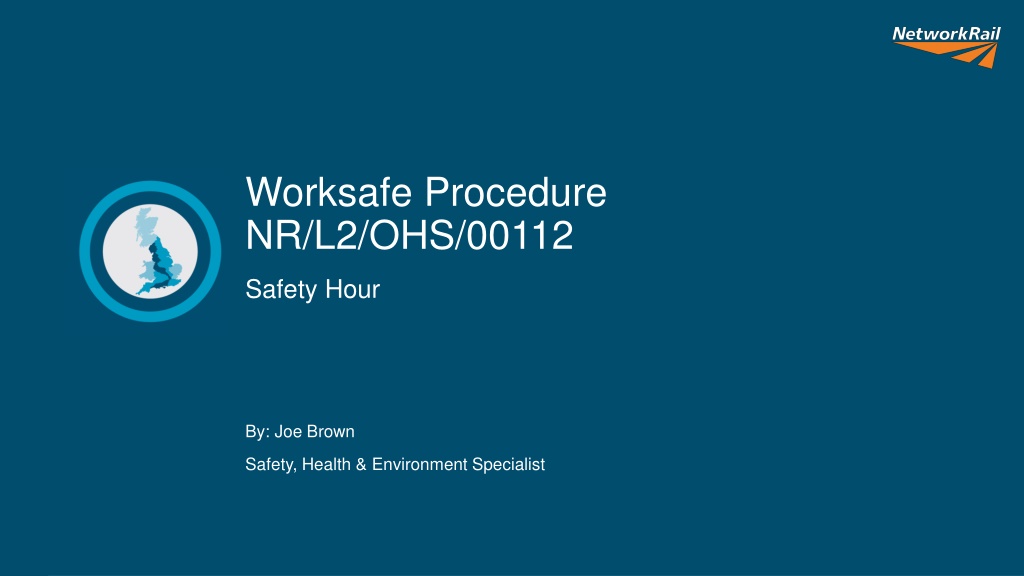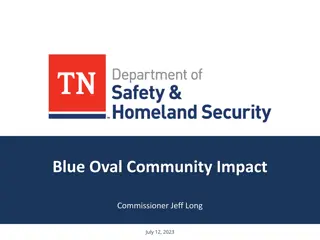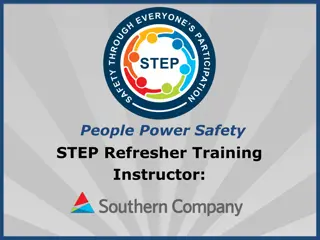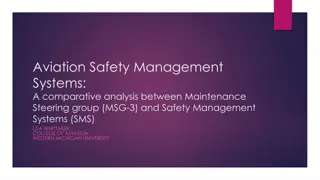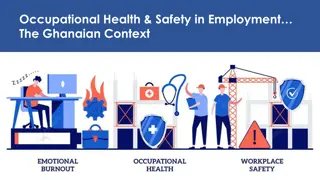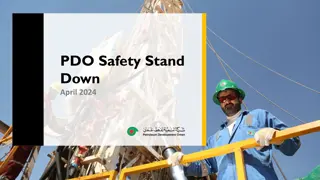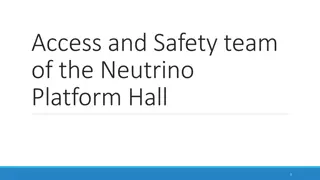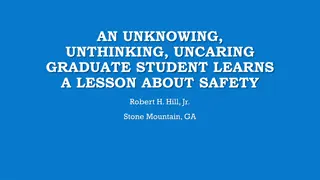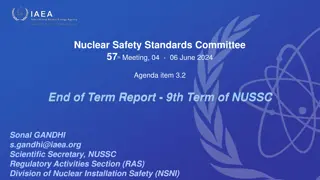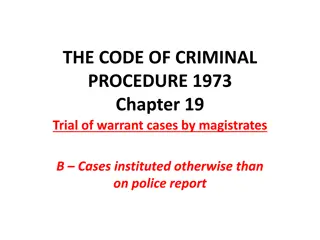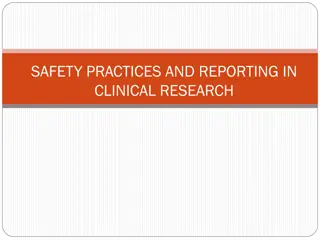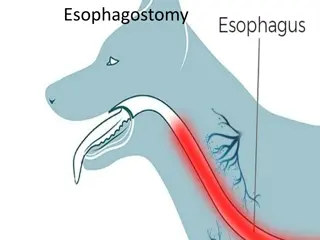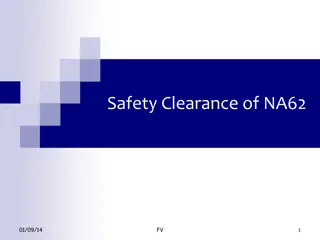Worksafe Procedure NR/L2/OHS/00112 Safety Hour Overview
The Worksafe Procedure NR/L2/OHS/00112 was introduced in 2009 to empower Network Rail employees to raise safety concerns and stop work if necessary. This procedure ensures a safe work environment by allowing employees to assess risks, establish safe work practices, and receive support from management. Examples of situations where the Worksafe Procedure can be applied are provided, along with insights on overcoming stigma and promoting a safety culture. The procedure involves stopping work, moving to safety, and contacting the person in charge to address safety concerns and agree on the appropriate course of action.
Download Presentation

Please find below an Image/Link to download the presentation.
The content on the website is provided AS IS for your information and personal use only. It may not be sold, licensed, or shared on other websites without obtaining consent from the author. Download presentation by click this link. If you encounter any issues during the download, it is possible that the publisher has removed the file from their server.
E N D
Presentation Transcript
Worksafe Procedure NR/L2/OHS/00112 Safety Hour By: Joe Brown Safety, Health & Environment Specialist
Background The Worksafe Procedure was introduced in 2009 to empower employees, by implementing a process that enabled work to be stopped where safety concerns were raised. It provides a mechanism to assess risk and where possible, to establish a safe way forward. Regardless of whether an employee works in an office environment, trackside, or in a materials handling facility, the Worksafe Procedure can be used by everyone. There is nobody more conscious than Network Rail when it comes to safety, which is why it is so important that employees can go about their daily work in the knowledge that there is a robust way to raise safety concerns should they arise. Remember The Worksafe Procedure could be the difference between a serious event occurring and the Network Rail ethos of Everyone Home Safe Everyday ! 2
Examples Can you think of a situation where you might raise the Worksafe Procedure? Here are a few examples of where the Worksafe Procedure may be raised, for example if you are asked to: Undertake a work activity without adequate training or the correct competency Use damaged, faulty or quarantined equipment Undertake a task without the correct PPE or RPE Work without a safe system of work or valid SSOW Undertake work without the required permits in place Carry out work without sufficient resource for the task Work outside the safe working parameters of equipment i.e. excessive wind speeds for working at height in MEWPS or outside of Safe Working Load for lifting equipment. Carry out a controlled lift without a lift plan. Operate plant or equipment in adverse weather conditions i.e. ice, dense fog and torrential rain that could significantly reduce braking efficiency and visibility. 3
Stigma In Route Services, we want everyone to feel empowered should the need ever arise to invoke Worksafe. Historically we acknowledge that the procedure has not always been represented in the best light. Below are some of the reasons behind why this may be: Safety Culture Awareness Knowledge Fear of repercussions Limited support ? Do you feel empowered and supported to invoke the Worksafe procedure ? 4
How Does it Work? The Procedure Stop work, move to a position of safety, and immediately contact the person in charge, explaining that you have invoked the Worksafe procedure and explain why you have stopped work. The person in charge shall, in discussion with the employee, make an assessment of the situation and determine the course of action required. An agreement should be reached that there has been a suitable and sufficient risk assessment of the task, the system of work is safe and that the work can be restarted. If no agreement can be reached, the work will not be restarted and the person in charge would consult their manager to agree when and how the work can be made safe. It will then be determined when staff can return to complete any outstanding works and to allocate other work in the meantime. You can expect full support from your manager and the person in charge to listen, evaluate and agree an action with you. Remember, If its not safe . THE WORK STOPS!!! 5
The Quiz How much do you know about the Worksafe Procedure QU1 - What year was the Worksafe Procedure introduced? AN1 2009 QU2 How many steps are there in the procedure to invoke Worksafe? AN2 5 QU3 Name the first step in the procedure to invoke Worksafe? AN3 See QU4 Name a single place where you can find information on Worksafe? AN4 Standards Page / Safety Central / Connect / Line Manager / Safety Hour QU5 If an action can t be agreed, what will happen next? AN5 The work will be stopped! 6
Resources For more information on the Worksafe Procedure, the following resources are available: Alternatively, you can contact Joe Brown (SHE Specialist) in Route Services The Standard (NR/L2/OHS/00112) Awareness Poster Safety Central 7
